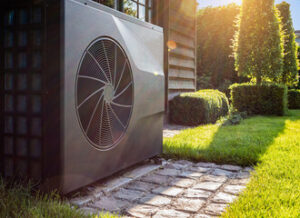There are many different components of a Heating & Air Conditioning system. Understanding these components will help you get the most out of your unit. Learn about their different functions and how they are installed. Also, learn how to maintain your unit. You’ll be glad you did when it works properly! 
Heating and cooling systems have various components, but their main purpose is to keep a room at the desired temperature. They work by using heat to circulate throughout a home and cold air to remove heat from the air. They also use thermostats to control the temperature of the room. These systems are very complex, with many different parts.
Split systems have multiple units in different rooms that provide temperature control. They also have smaller units that are mounted on the walls and are connected to compressors located outside the house. Split systems are easier to install than window air conditioners, but it’s important to hire a professional for this task. They are also more expensive than window air conditioners.
The most common heating and air conditioning systems use gas or electricity. Package installations combine a gas furnace with an electric air conditioner. These systems are best for homeowners who need both heating and cooling capacity. They also come with air quality improvers, such as UV lamps, which remove pollutants from the air before it circulates.
Another type of Heating & Air Conditioning system is called a hybrid system. This system uses both a heat pump and a gas furnace to heat and cool a home. The gas furnace acts as the secondary heat source when temperatures drop. If you want a more efficient heating system, you should consider a hybrid system. These systems are best for unpredictable climate changes and are great for reducing energy bill expenses.
Heating and cooling systems are essential to maintaining the comfort and health of your home. While most homeowners think of these components as separate units, they have actually coordinated pieces that work together to deliver superior comfort and efficiency. When installed together, HVAC systems can operate more quietly, be more reliable, and save you money by using less energy. This is because the components are designed to work in harmony with each other.
The components of a heating and cooling system include the furnace, evaporator, and fan. The furnace heats air and uses either electricity or natural gas to accomplish this task. The other components may include valves, sensors, and fans. Heating & air conditioning systems may also have additional components, such as heat pumps and air conditioning systems.
Heating and air conditioning (HVAC) systems are vital components of residential, commercial, and industrial structures. They keep rooms at a comfortable temperature and prevent humidity from building up. This technology also serves as an important component of vehicles, hospitals, and marine environments. During the installation process, a technician will inspect all of your home’s heating and cooling systems and determine which one is best for your space.
Investing in regular maintenance for your heating and air conditioning system is an excellent way to save money on utility costs. It can prevent unexpected breakdowns and repairs and will keep your system working at its optimal efficiency. Ideally, you should schedule preventative maintenance twice a year, once in spring and again in fall. In addition to ensuring the efficiency of your system, preventative maintenance can also provide you with information about potential problems.
HVAC maintenance costs can vary greatly. Standard tune-ups cover adjustments and checks on the working parts of your system. However, if your system is more complex, additional tune-ups may cost more. When you choose maintenance, you will also benefit from preferential scheduling, which puts you ahead of the queue for repairs.
Regular maintenance can also minimize the chances of unpleasant smells or noises coming from your HVAC system. Heating and air conditioning maintenance are essential to the safety of your home. A poorly functioning HVAC system can cause pipes to freeze and cause water damage, which can be very expensive. The cost of repairs can add up, so it’s best to avoid any problems by scheduling routine maintenance.
Routine maintenance is essential to extending the life of your HVAC system. Because HVAC systems are so complex, you may not notice the signs immediately. Therefore, it is important to check the electric components of your system and the ductwork to ensure everything is in working order.
